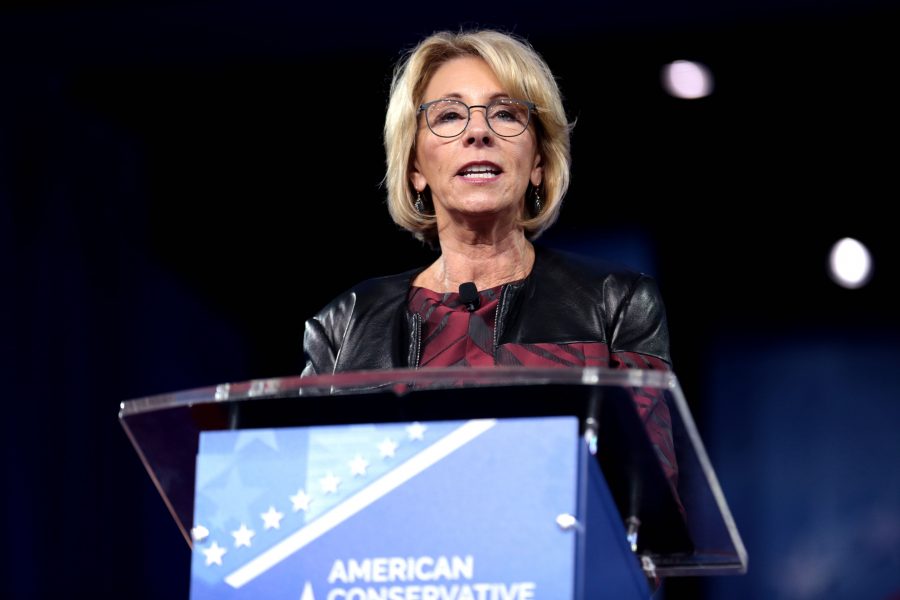DeVos’ appointment casts doubt on leveling gap on educational opportunities
Credit: Wikimedia Commons user Gage Skidmore
Secretary of Education Betsy DeVos speaks at the 2017 Conservative Political Action Conference (CPAC) in National Harbor, Maryland.
April 6, 2017
After a tight 50-50 tie in the Senate, on January 30, Betsy DeVos was finally confirmed as the United States Secretary of Education with an unprecedented need for Vice President Mike Pence’s tie-breaking vote. While DeVos has never worked for the government, she has been politically active as an advocate for different policies for more than 35 years (according to her website) primarily in her home state of Michigan. These successes seem to paint a picture of a thriving businesswoman, but many ridiculed her for her promotion of charter schools and vouchers and her lack of experience with the public education sector.
DeVos’ propositions about school choice – the ability to choose between using government-funded vouchers to attend private school, attend a charter school, or attend a local public school – aims to level the gap in educational opportunities between low-income and high-income families.
Advocates of school choice point to the link between lower income areas and poorer performing public schools as a problem that school choice could combat. Giving the option for families to send their children to different schools could allow them to dodge failing public schools and ideally provide improved educations.
School choice offers the ability to attend charter schools. Opposition to charter schools stem from its failure to offer adequate education and are shut down, so pupils have received inadequate education for the duration of their attendance. Failing public schools, they argue, have less accountability and are continually funded, so pupils could continually receive inadequate education without any retribution.
Supporters for school vouchers, which would be akin to government-sponsored “coupons” that can be put towards a private school tuition, point to their potential to provide access to elite private education that is inaccessible to those in lower income brackets.
These policies have been in place in cities in DeVos’ home state of Michigan, which predict what may become of the American education system if implemented on a large scale. According to The Washington Post, many of Michigan’s charter schools have below average test scores, but the ineffective system for shutting down these unsuccessful charter schools makes it so appealing to many.
DeVos’ policies will play out. The unintended consequences of these policies have rendered them more detrimental than beneficial as the public school system in Detroit shows; thus, DeVos’ confirmation has put many Americans on edge. Only time will tell how DeVos’ policies will play out on a national scale.

